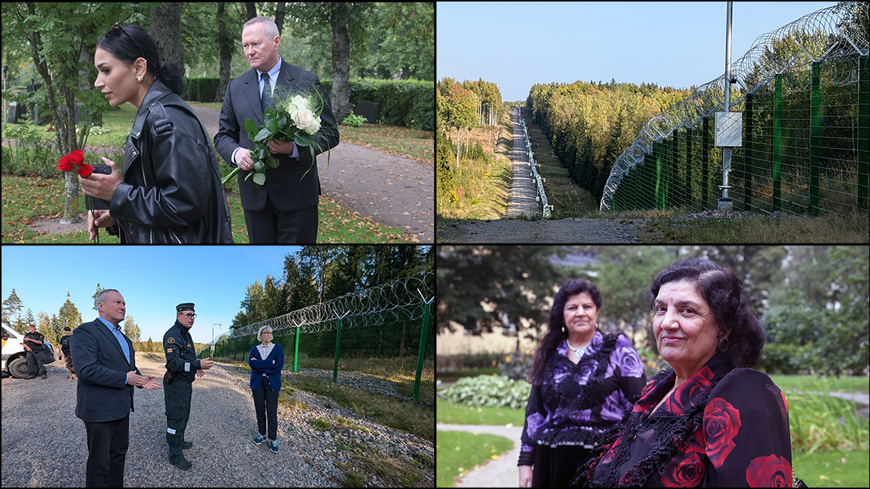The Council of Europe Commissioner for Human Rights, Michael O’Flaherty, has called on Finland to continue to honour its strong track record of promoting and defending human rights, following a visit to the country from 23 to 26 September, which focused on the situation of Roma and issues related to migration and asylum.
The Commissioner visited several places of human rights relevance, including the border crossing point of Imatra where he engaged with on-duty border guards and the Joutseno reception centre and detention unit. While recognising the serious challenges faced by Finland because of the manipulation of migration on the part of a neighbouring state, the Commissioner stressed that ensuring border control should not come at the expense of human rights. “I remain of the view that the recent Finnish law allowing for temporary restrictions on asylum applications, if implemented, would violate international obligations, including the prohibition of refoulement and collective expulsion and the obligation to provide effective remedies. The authorities should reconsider this law.”
Commissioner O’Flaherty noted the efforts of border guards in preparing for the potential implementation of these measures, especially their training on identifying vulnerable people. However, he expressed doubts about the feasibility of carrying out such complex assessments in compliance with human rights.
The Commissioner also encouraged Finland to continue seeking regional solutions to border security and instrumentalisation of migration, and stressed that these must be fully aligned with the European Convention on Human Rights, the EU Charter of Fundamental Rights, and the 1951 Refugee Convention.
On Roma, the Commissioner commended Finland’s achievements in human rights, noting that its efforts to support civil society can serve as valuable lessons in working with Roma communities. However, he was informed of concerns regarding discrimination and rising racism. “The everyday impact of antigypsyism is well captured in the words of one young Roma activist”, said the Commissioner. “A Roma name, traditional dress, or looks means that the door is closed in your face.”
Commissioner O’Flaherty acknowledged Finland’s legal framework and national action plans to protect Roma rights but noted gaps in implementation. He urged authorities to address the effects of welfare reforms, which disproportionately affect marginalised communities such as Roma. The Commissioner also expressed concern about the conditions faced by Roma coming mainly from Eastern Europe, who often experience homelessness and destitution. “More is needed to increase this group’s access to such social rights as housing and employment opportunities”, he said.
During the visit, the Commissioner met with the Minister of Social Affairs and Health Kaisa Juuso, the State Secretary to the Minister for Foreign Affairs and Minister of Defence Pasi Rajala, the State Secretary at the Prime Minister’s Office Risto Artjoki, the Interim Permanent Secretary of the Ministry of Justice Antti Leinonen, the Chief of the Border Guard Lieutenant General Pasi Kostamovaara and the Chief of Division of the Border and Coast Guard Division Major General Matti Sarasmaa, as well as Jani Järäinen, the Head of the International Affairs Unit of the Border Guard Headquarters, the Permanent Secretary of the Ministry of the Interior Kirsi Pimiä, the Non-Discrimination Ombudsman Kristina Stenman, and members of the National Advisory Board on Romani Affairs. As part of his engagement with Roma communities, he visited the Roma War Memorial and met with civil society representatives who work with Roma communities and Roma activists, groups of Roma women, young Roma and non-Finnish Roma. Regarding the situation at the border, the Commissioner visited and exchanged with actors in the Southeast Finland Border Guard District, as detailed above. He discussed broader human rights issues, in Finland and across the region, during the plenary meeting of the Finnish Human Rights Centre’s Human Rights Delegation.



